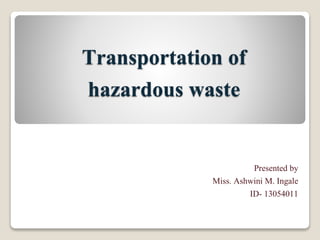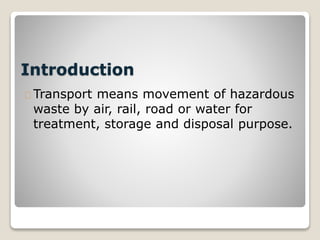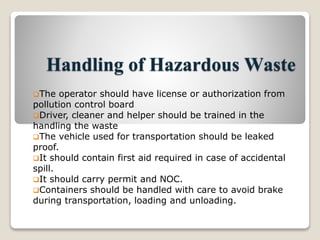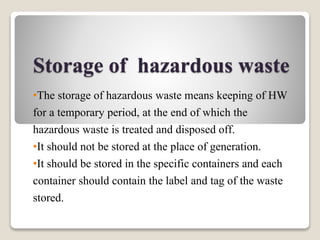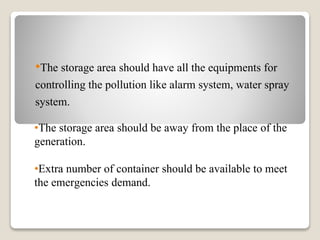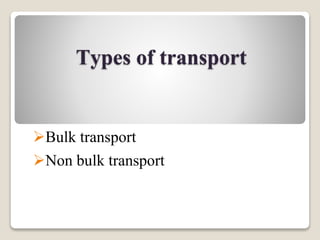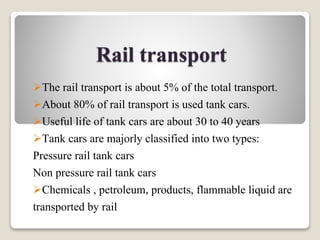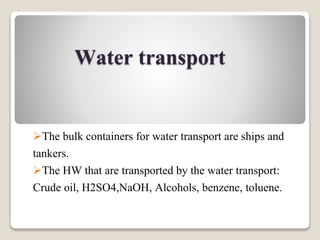Transportation of hazardous waste
- 1. Transportation of hazardous waste Presented by Miss. Ashwini M. Ingale ID- 13054011
- 2. Introduction Transport means movement of hazardous waste by air, rail, road or water for treatment, storage and disposal purpose.
- 3. Handling of Hazardous Waste The operator should have license or authorization from pollution control board Driver, cleaner and helper should be trained in the handling the waste The vehicle used for transportation should be leaked proof. It should contain first aid required in case of accidental spill. It should carry permit and NOC. Containers should be handled with care to avoid brake during transportation, loading and unloading.
- 4. Storage of hazardous waste •The storage of hazardous waste means keeping of HW for a temporary period, at the end of which the hazardous waste is treated and disposed off. •It should not be stored at the place of generation. •It should be stored in the specific containers and each container should contain the label and tag of the waste stored.
- 5. •The storage area should be away from the place of the generation. •Extra number of container should be available to meet the emergencies demand. •The storage area should have all the equipments for controlling the pollution like alarm system, water spray system.
- 6. Containers of hazardous waste •Container used during transportation should be of mild steel and anticorrosive. •It includes drum, dollies, forklifts, etc •The containers for liquid hazardous waste should be sealed. •The containers should be able to withstand the shock loads and should be easy to handle while loading and unloading. •The separate containers should be used for different waste. •Proper marking of container is essential. •It should be labeled.
- 7. Types of transport Bulk transport Non bulk transport
- 8. Bulk transport of HW It is carried out by three medium: Highway transport Rail transport Water transport
- 9. Highway transport Large tanks mounted on the trucks are used for transport The tanks are generally made of steel, aluminum alloy Its capacity is 4000 to 12000 gallons It involves the delivery of gasoline, propane, etc.
- 11. Rail transport The rail transport is about 5% of the total transport. About 80% of rail transport is used tank cars. Useful life of tank cars are about 30 to 40 years Tank cars are majorly classified into two types: Pressure rail tank cars Non pressure rail tank cars Chemicals , petroleum, products, flammable liquid are transported by rail
- 12. Water transport The bulk containers for water transport are ships and tankers. The HW that are transported by the water transport: Crude oil, H2SO4,NaOH, Alcohols, benzene, toluene.
- 14. Non bulk transport When small amount of hazardous waste is to be transported over a long distance then non bulk transport practice is adopted. Materials used in non bulk transport are: •Fiberboard •Plastic •Wood •Glass •metals
- 15. Thank you
